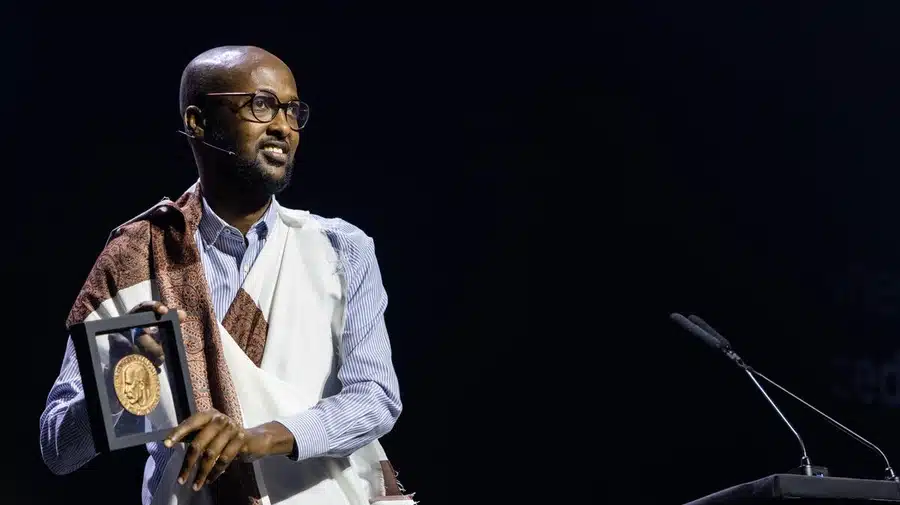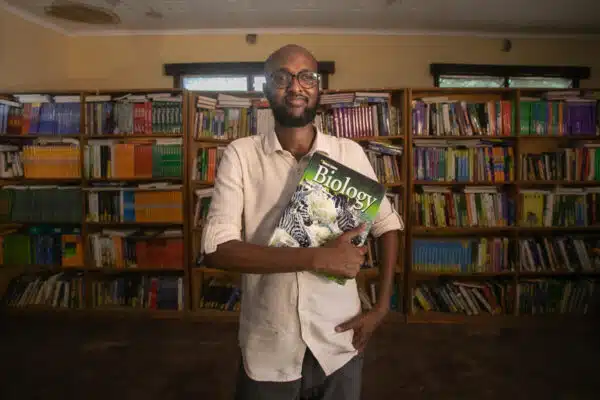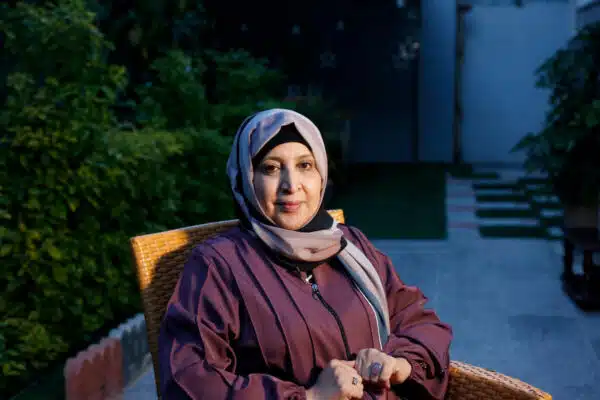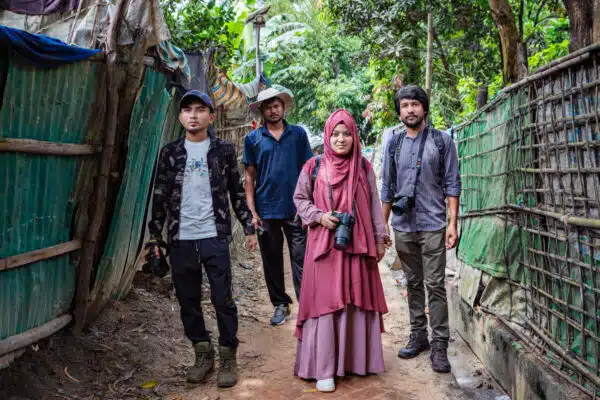
Abdullahi Mire, the 2023 Global Laureate, receives the UNHCR Nansen Refugee Award at a ceremony in Geneva. © UNHCR/Will Swanson
Abdullahi Mire was celebrated at a ceremony in Geneva on Wednesday for his dedication to creating opportunities for young refugees in Kenya through the power of education
By UNHCR Staff
A former Somali refugee and journalist who has devoted himself to ensuring that young refugees have the possibility to transform their lives through education tonight accepted the 2023 UNHCR Nansen Refugee Award at a special ceremony on the sidelines of the Global Refugee Forum in Geneva.
Abdullahi Mire, 36, has provided crucial learning opportunities to tens of thousands of displaced children and youth at Kenya’s Dadaab refugee camps through the Refugee Youth Education Hub, the organization he founded. Since 2017, RYEH has set up three libraries in the camps where girls and boys can study in safety. Mire and his volunteers have also collected and distributed 100,000 books to children in Dadaab.
Mire himself grew up in Dadaab after fleeing Somalia with his family at the age of 3. He quickly grasped that education was the key to a life outside the camps. With his mother’s steadfast support, he completed high school and then a degree in journalism and public relations. But instead of pursuing a lucrative career, he set out to help other young refugees realize their own potential.
He accepted the prize “on behalf of all refugee children whose greatest desire is to thrive”.
“Education gave me knowledge which gave me agency and together they gave me the power to make decisions about my own future,” he said. “I work now so that every child displaced by conflict, climate change, or natural disaster has that same opportunity.”
UN High Commissioner for Refugees Filippo Grandi described Mire as “a person that has made books the instrument of solidarity and the instrument of hope for his community.”
“He was resettled from Kenya, where he was a refugee, to Norway, where he was given other opportunities. But in spite going as a refugee to Norway, he went back to Kenya to serve his fellow brothers and sisters, his community of refugees.”
Also honoured during the ceremony at Geneva’s Palexpo convention centre, which was presented by journalist and NBC anchor Ann Curry, were the four regional winners for 2023. Americas winner Elizabeth Moreno Barco was recognized for her work advocating for communities affected by armed internal conflict in Colombia. Regional winner for the Middle East and North Africa Asia Al-Mashreqi received an award for her leadership of one of Yemen’s largest NGOs, the Sustainable Development Foundation, which has delivered humanitarian assistance to nearly 2 million people, including internally displaced people and refugees.
The Polish couple Lena Grochowska and Władysław Grochowski accepted the Europe award for the work their foundation has done providing shelter and practical support to thousands of refugees who have arrived in Poland since the outbreak of full-scale war in Ukraine in February 2022.
Four Rohingya storytellers – Abdullah Habib, Shahida Win, Sahat Zia Hero and Salim Khan – won the regional award for Asia and the Pacific for their use of photography, poetry, journalism and audio-visual art to document the experiences, voices and hopes of stateless Rohingya refugees living in camps in Bangladesh.
Boundary-pushing Rwandan-Congolese artist Lous and the Yakuza (real name Marie-Pierre Kakoma, who lives in Belgium) opened the ceremony with a song written especially for the event and its award winners just days earlier.
Japanese musician, actor and UNHCR Goodwill Ambassador Miyavi also took to the stage to perform two of his hits, before joining Grammy Award-winning Indian musician, composer Ricky Kej, also a UNHCR high-profile supporter, for the night’s closing performance – a rousing rendition of his song “Shine the Light”, produced in collaboration with 28 refugees living in India.
The UNHCR Nansen Refugee Award was established in 1954 to recognize individuals, groups or organizations for their outstanding work helping refugees, internally displaced or stateless people. It is named after Fridtjof Nansen, a Norwegian explorer, scientist and diplomatic who became the first High Commissioner for Refugees at the League of Nations in 1920. He developed the “Nansen passport” shortly afterwards, which served as an identity document and a travel permit for refugees until 1942.
Originally published by UNHCR on 13 December 2023.





